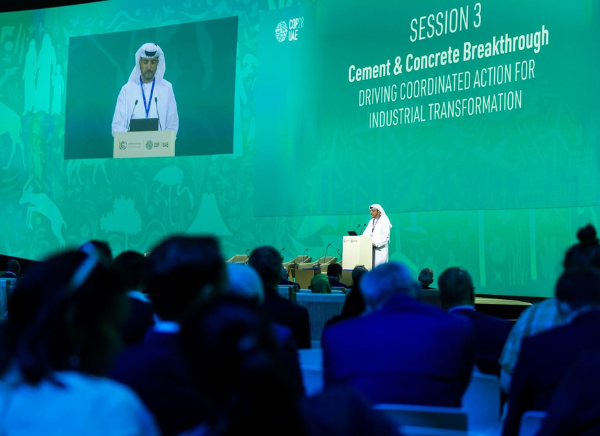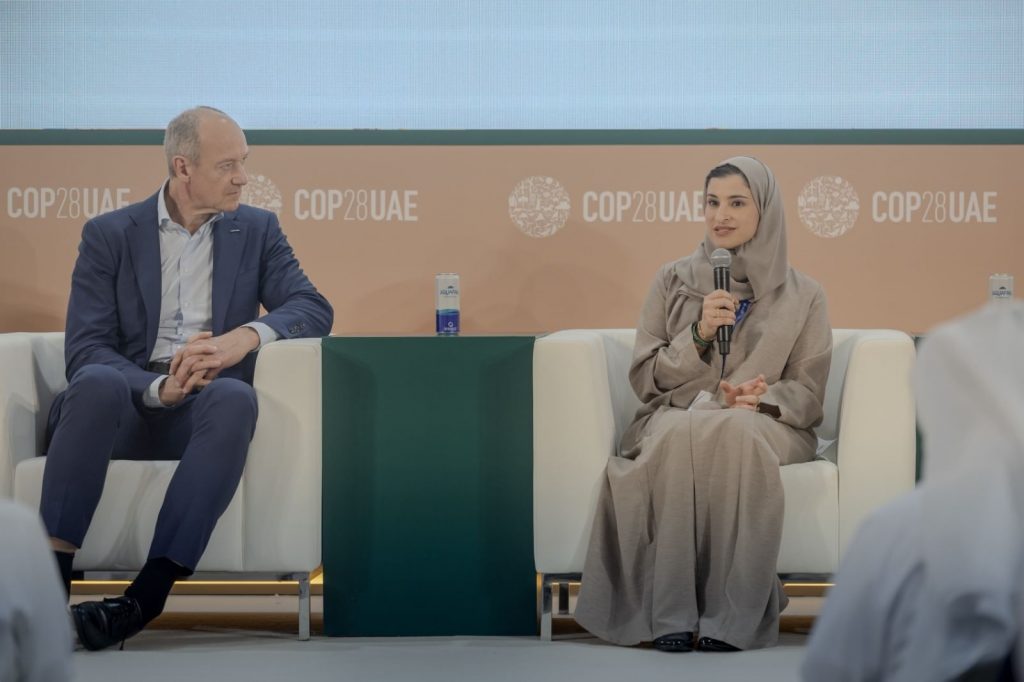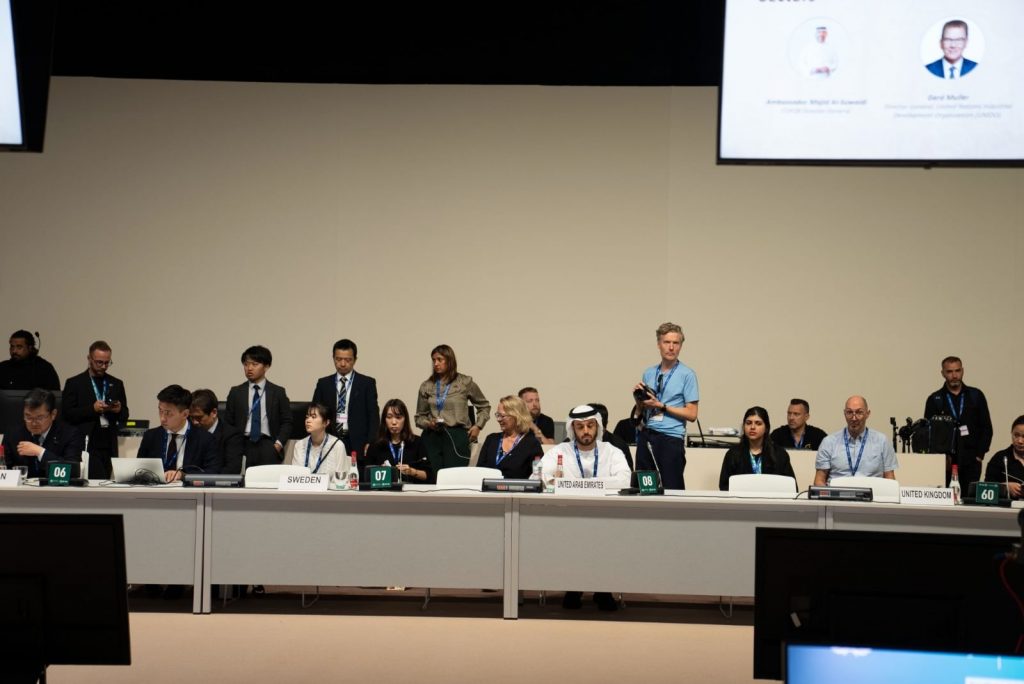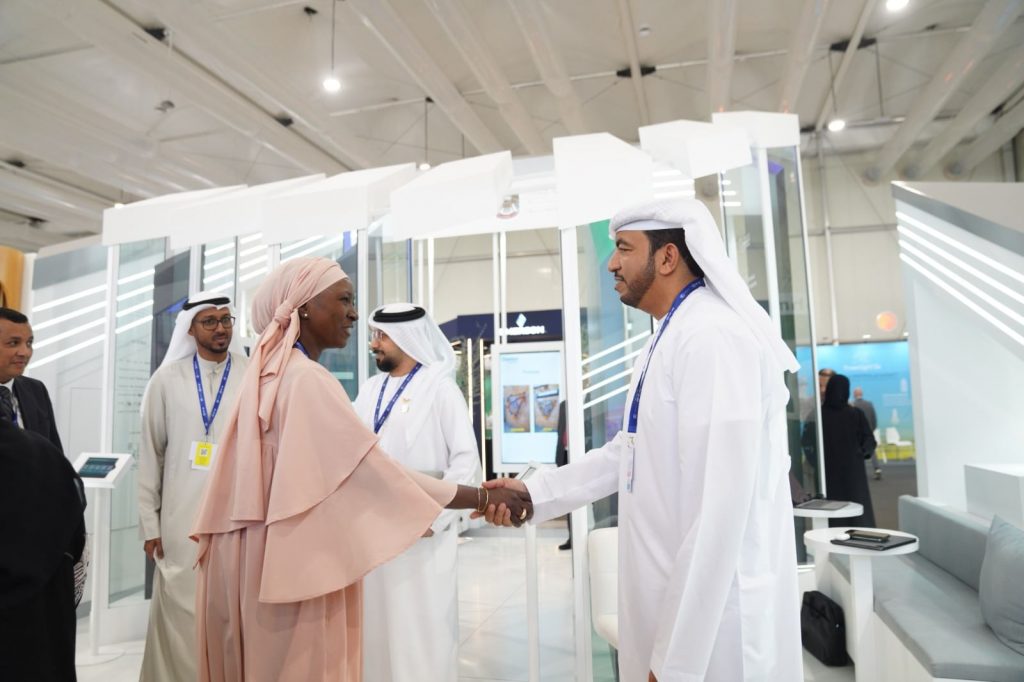
The Ministry of Industry and Advanced Technology (MoIAT) has successfully concluded its engagement in COP28.
MoIAT’s involvement in COP28 highlighted the interconnectedness of industry, technology, and climate action. The ministry played host to a diverse array of local, regional, and global entities, fostering meaningful interactions with thousands of experts, investors, innovators, and visitors at its pavilion.
Furthermore, MoIAT took an active role in hosting and participating in specialized sessions, interactive discussions, and workshops. The ministry also solidified its commitment to collaboration by signing several memoranda of understanding with international partners.
The ministry’s active participation is in harmony with the goals outlined in the National Strategy for Industry and Advanced Technology. This strategy aims to propel the adoption of advanced technology in the industrial sector, expedite industrial transformation, and attract investments from local, regional, and international sources.
Key objectives of the strategy include reinforcing the UAE’s status as a premier industrial and technological hub, enticing innovators, pioneers, and investors. To achieve this, the strategy focuses on providing opportunities and financing, supported by advanced infrastructure, world-class logistics networks, and robust digital infrastructure.
During COP28, the Ministry of Industry and Advanced Technology unveiled a comprehensive decarbonisation roadmap for the industrial sector, with a specific focus on challenging industries such as cement, iron, steel, and aluminum. This strategic initiative underscores the UAE’s dedication to addressing climate change challenges and achieving its national sustainability goals.
To enhance the industrial sector’s role in climate action and sustainable economic development, the ministry organized special sessions during COP28. Policymakers, technology experts, and global industrial leaders came together to discuss strategies aligned with the UAE’s Net Zero by 2050 initiative and the third update to the Nationally Determined Contribution (NDC) report under the Paris Agreement.
In collaboration with the United Nations Industrial Development Organisation (UNIDO), the ministry hosted sessions in both the Blue and Green Zones, addressing topics such as ‘Technology in Decarbonisation,’ ‘Advancing the Energy Transition,’ ‘Low-Emission Hydrogen,’ and ‘Decarbonisation of Hard-to-Abate Sectors.’
As part of its COP28 engagement, the ministry collaborated with the Global Manufacturing and Industrialisation Summit (GMIS) and UNIDO to launch World Industrial Day. This international day promotes inclusive and sustainable industrial development.
The UAE endorsed the Green Public Procurement Statement of Intent under the Clean Energy Ministerial Industrial Deep Decarbonisation Initiative (IDDI). This initiative aims to boost demand for low-emission materials through public procurement, addressing challenges in the steel and concrete sectors.



The UAE and Canada jointly launched “The Cement and Concrete Breakthrough” initiative, focusing on international collaboration to accelerate decarbonisation in the cement industry. Additionally, a memorandum of understanding was signed with Vietnam’s Ministry of Science and Technology to enhance collaboration on quality infrastructure.
The ministry’s pavilion at COP28 showcased 38 local and international entities providing technological solutions supporting sustainability, carbon reduction, and climate action. The platform aimed to facilitate knowledge exchange, promote investment opportunities, and foster collaboration between ecosystem players, technology providers, SMEs, and startups.
Under the ‘Make it in the Emirates’ initiative, the pavilion highlighted sustainable industrial investment opportunities in the UAE, emphasizing the country’s business-friendly environment. The pavilion served as a meeting point for innovators, startups, and prominent national and international entities, fostering business growth opportunities in the industrial, technological, and environmental sectors.